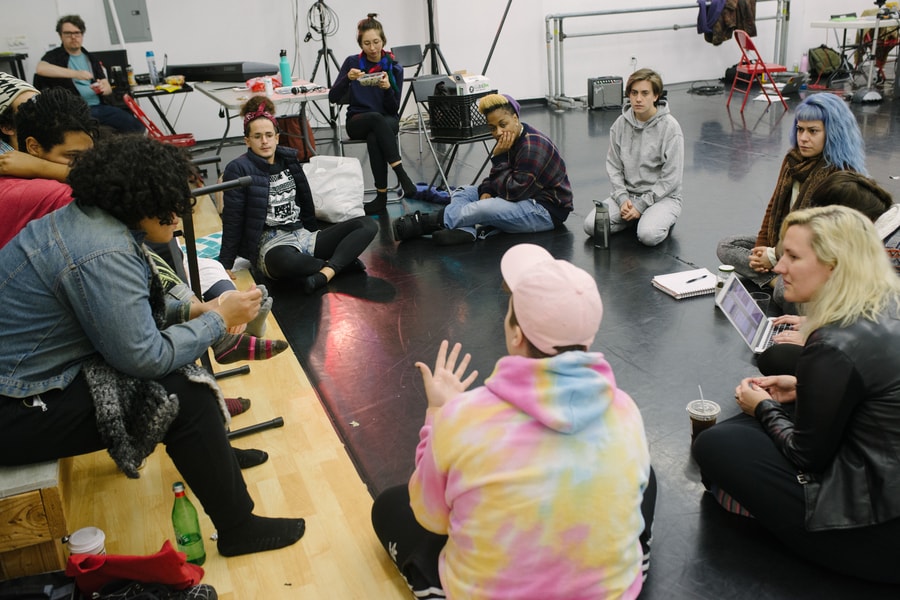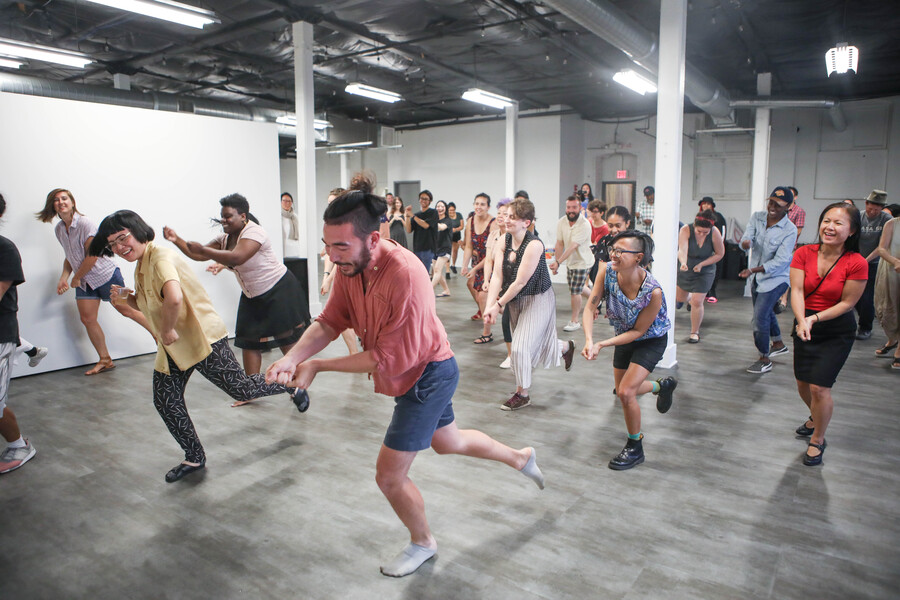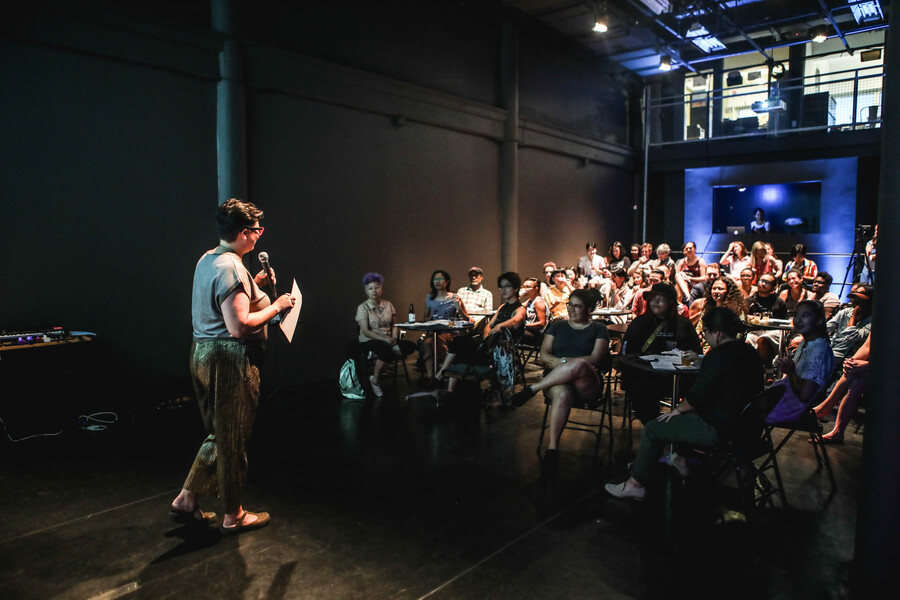About three years ago, I started to think a lot about professionalism. Wondering what it truly meant, I thought about the many arts nonprofits I had worked for and what made them “professional.” When I was younger, I thought it had something to do with resources: that the theatre companies with the most resources, most wealth, and largest audience sizes were obviously the most professional. Professionalism, it seemed, was tied to class, which also means it was inevitably tied to race.
I would serve on grant panels and listen to white arts administrators sitting next to me tear apart applications written by Black, Indigenous, and people of color-run (BIPOC) organizations, all while ignoring the same flaws in applications from white-run arts organizations. One administrator even had the audacity to base their entire perception of an organization’s professionalism on how neat their planning documents were, as if this justified their need for funding. But how something looks on paper is very different from the energy in a rehearsal room or a production meeting, or the systems in place within the organization that create that energy.
The perception of professionalism often has very little to do with the art itself. There is a false correlation between “more professional” and “higher quality.” And underneath that is the assumption that this is what audiences look for in the theatre that they watch.
“I was doing this workshop where one of the questions was, ‘What do you value in a performance?’ Professionalism was one of the options, and nobody picked that except for a couple of adults,” says Sam Tower (she/her), co-founder of Ninth Planet, a performance art collective that centers queer BIPOC communities. “People were selecting words like authentic, adventurous, captivating, or magical. Professional does not equal good art. It doesn’t equal urgent, beautiful, or something that people will remember.”
That leaves many of us questioning what professionalism even means. I have often found myself thinking in terms of feeling harmed versus feeling joy. Some institutions have caused great institutional trauma, and I found myself actively avoiding them after working there. Others have brought me immense joy and make me want to emulate their strategies. It felt like it was more than just about the quality or type of work I was doing—there was a cultural energy in the room that was shaping the way professionals interacted with each other.
“There’s one version of professionalism that would be conflict avoidance.”
The longer I spent time grinding away at the insurmountable labor that comes with working at a 501(c)3, the more I began to resist the cultural norms that held them together. I started to reflect on communication and how it differs across cultures. Interrupting, for example, was seen as very rude in the white spaces that I spent so much time in, and it was seen as a sign of disrespect. Clearly these people have never sat at a table full of Colombians or Haitians; growing up within those cultures can create some confusion about which norm is the one worth respecting, and which one should be eschewed.
“For Ninth Planet, so much of our journey as a company was trying to be the opposite of the negative experiences we’ve had with other organizations or artists,” says Nia Benjamin (they/them), a company co-founder. “I think for us, professionalism was oppressive in other spaces—this desire to keep a hierarchy that we were co-signing on every time we walked into a room, even if we didn’t believe in it or we knew that someone had caused us harm.”
These reflections don’t come without uncomfortable realizations. There have been institutions I have praised—even some run by Black and brown leadership—that have also perpetuated some of the negative experiences Benjamin refers to. No matter who was steering the ship, working at any nonprofit came with a lot of hidden expectations. These expectations included going beyond the bounds of my contract, giving more of my own time than I agreed to, and watching as those who made themselves into martyrs for the mission of the organization were rewarded. Or, for some, it meant acquiescing to fit into a rigid box of so-called respectability.
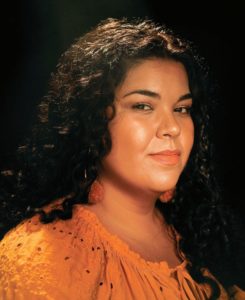
“When I think about professionalism, I think about how my white friend told me to straighten my hair before going to an interview, and I think about altering the way I speak,” says Gabriela Sanchez (she/her), one of the co-founders of Power Street Theatre Company, a women-of-color-led theatre in North Philadelphia. “I think about a certain group of people automatically being professional. It’s almost something that you’re born into through wealth, knowledge, or mentorship.”
So many theatre artists are asked to stretch their boundaries in ways that have nothing to do with the art. Very often I’ve felt as if equity, diversity, and inclusion (EDI) work has had too big of a fixation on representation: who is in the room, and how do we diversify our staff? I’ve also seen institutions make diverse hires, only for those hired to eventually leave due to the toxicity of the work environment. In those cases it certainly seemed that there was a correlation between an artistic leader’s aversion to conflict and the overall health of the organization. In previous organizations I’ve worked at, tense emotions were often bottled up for the sake of professionalism, which led to deeper resentment and even more issues later on.
“There’s one version of professionalism that would be conflict avoidance,” says Daniel Park (he/him), a member of the organizing committee at Philadelphia Asian Performing Artists (PAPA), a theatre group supporting Asian/Pacific Islander playwrights and artists with productions and workshops. “‘Don’t speak your truth or handle conflict in a different way from the rest of the group.’ Thinking about other spaces where I have to show up as a different type of professional, if I wanted to engage in healthy conflict with people, I would need to go about that in a slightly different way.”
It is not enough to hire more BIPOC or queer artists/administrators. I wanted to speak to organizations in Philadelphia, the city where I first became a professional, that are going against the grain of what professionalism means—whether it be through dismantling, redefining, or creating it anew—and look to find points of divergence and intersection between my practices and the practices of others. What I found was that, in addition to hiring practices, the professional culture, energy, and structure of organizations must change as well.
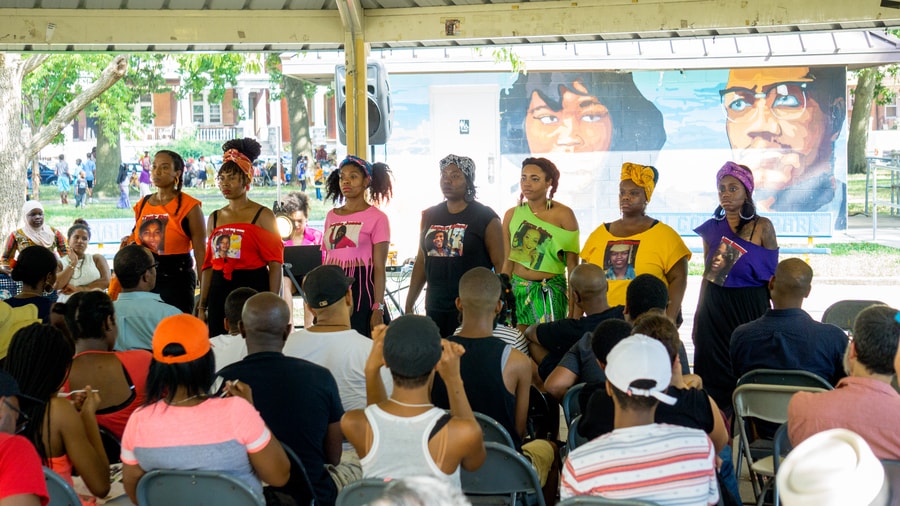
Respecting Peoplehood
For Theatre in the X, a Black-run theatre company that creates free public performances in West Philly, professional means not treating theatre artists as though they’re an abstract concept separate from who they are as humans.
“One of our key values is valuing people—people who are working with us or people in the community we’re working in,” says LaNeshe Miller-White (she/her), executive director of Theatre in the X. “We’ve given homeless men a few dollars for helping us load in and load out. We’ve supported parents in being able to have kids in the room. Part of the reason why we do that is because we know that we’re not paying them the actual value of their time. I’m not going to make you give up the rest of your life to do this production, and there’s no pay worth making you give up your life.”
Whether you’re a parent artist working in theatre or someone who has to have multiple jobs in order to sustain your art, the professional labor needs to work around this fact, not against it.

“I believe we can be professional humans—and not in the capitalist sense—by paying people in the love and satisfaction that comes with being dependable,” says Carlo Campbell (he/him), co-artistic director of Theatre in the X. “People think that community theatre is unprofessional because it’s not paid. But some people have the banner of professional because they’re paying them, but they’re not doing anything dependable. They’re not caring about their personhood, whether it’s related to sexual orientation, identification, or race.”
On an even deeper level, we must respect peoplehood across all experiences. Theatre is a medium steeped in colonial ideas surrounding the “importance” of the Western canon and whose work is seen as most valuable. Black theatre artists in particular experience an undue amount of pressure to conform to white ideas of professionalism, in both content and practices.
“Professionalism, in the way that it’s defined, especially in theatre, is an attack on Black people,” says Walter Deshields (he/him), co-artistic director of Theatre in the X. “We are a group of folks that are LGBTQ, pulling these folks into the community and showing so much love. Still to this day, I believe that that same kind of respect doesn’t apply to Black folks. When we talk being professional in the way that they define it, it means, ‘Don’t be Black.’”
This can manifest itself in unfair treatment: Black people being reprimanded for a lack of professionalism while their non-Black peers don’t encounter the same resistance, for instance. While other identity groups are affected by this as well, it’s important to reiterate that undoing these systems requires an examination of how it affects Black arts professionals disproportionately.
“After every show at Power Street, I have ended up at the hospital. That tells you I’m doing too much. I was willing to do that because I care so much about this, but I don’t want to die. I had to think about that: ‘This will kill me if I keep going in this direction.'”
Additionally, there is an element of allowing other people to come as they are which makes theatre spaces healthier. I’ve seen rehearsal rooms and staff meetings that create space for venting or unpacking feelings at the top of the agenda. In these settings, meetings aren’t just for logistics, but also a space for professionals to be human together.
“What I see in LORT theatres is, ‘Hi, we’re family,’” says Liana Irvine (she/her), PAPA’s outreach coordinator, “and they seem to weaponize being held accountable to that. With PAPA, this is voluntary, and we’re all putting in work and we’re all here for it. There’s no sense of, ‘I owe you something.’”
This means that we need to acknowledge just how hard everyone is working, and also how hard the work really is. There is a constant burnout that we encounter from the sheer amount of (unpaid and underpaid) labor that goes into upholding a collective artistic vision, and the pressure placed onto facilitators in this process.
“The first step is working on yourself, and that’s what I think I’ve forgotten over the years,” says Power Street’s Sanchez. “After every show at Power Street, I have ended up at the hospital. That tells you I’m doing too much. I was willing to do that because I care so much about this, but I don’t want to die. I had to think about that: ‘This will kill me if I keep going in this direction.’”
I don’t want to live in a world where creating a sustainable life as an artist comes at such a deep physical or spiritual cost. When we live in a world that constantly demands immense emotional and physical labor from BIPOC artists, how can we pivot and honor the work that’s already being done?
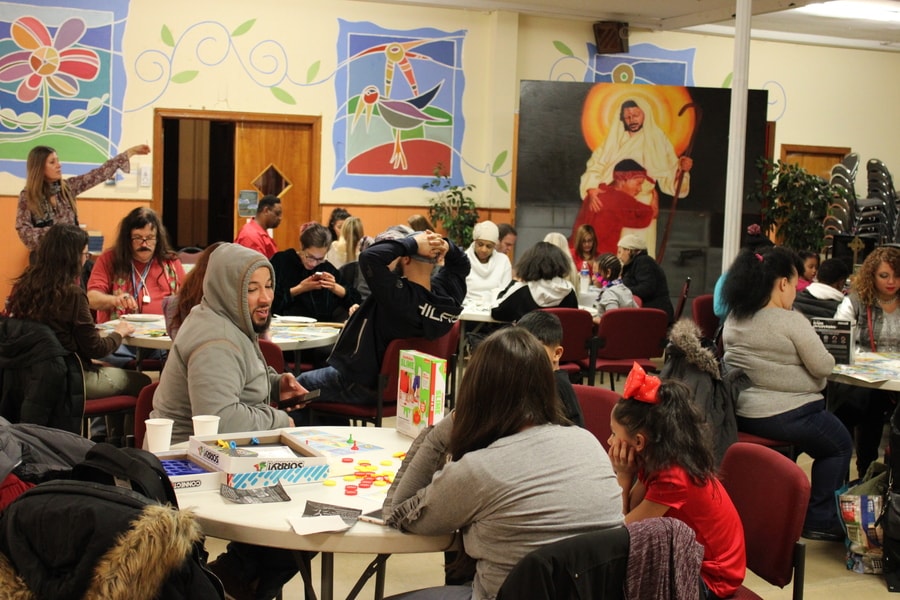
Celebrating Laborers, Not Labor
When I’ve interviewed other groups in the past, one thing I wish I had addressed was the tension that often exists between artistic leadership and arts administrators, especially BIPOC administrators. I’ve worked for many theatre companies where there is a notable divide between the artists who get to make the arts, the administrators who are hidden away in offices, and the production crew who often have little say in the direction of the organization’s artistic vision.
Time and time again, I’ve noticed members of a production team groan at increasingly ambitious projects birthed by artistic leadership—ambitions that always force production crews to work grueling hours to uphold someone else’s vision. Arts administrators are seen in the background of galas, fundraising events, and other projects for which they only receive complimentary tickets. There is often a brazen lack of care for these workers in the arts.
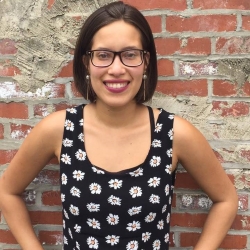
“There’s already this underlying resentment from administrators,” says Erlina Ortiz (she/her), co-artistic director of Power Street, “and they’re very disconnected from the actual art that’s happening in their art spaces. We are administrators and artists. We care about the work but we’re also creating the work. A lot of admin don’t even know the artists who are in their building. A way to connect those two sectors is going to foster a healthier theatre community.”
Part of this has to do with scale. Even in the middle of a pandemic that has forced millions of people into precarious financial and personal conditions, there is still a sense of entitled ambition that comes from many white-run theatre companies that simply must produce with an outrageous level of organizational wealth.
“We’ve really had to ask ourselves: Why? Why do you need to film a play and put it on the internet? Why do you need to do a virtual theatre program? Why is it urgent? The why of it is such an important aspect of our dramaturgy as performance makers,” says Ninth Planet’s Tower. “But also, the why is important to how you produce a show. Do people need to spend more time on their computers?”
While these digital productions have resulted in a certain number of artists being able to work, attempts by white-run theatres to stay connected with their patrons and produce for the sake of producing has resulted in a lot of half-hearted attempts at digital content. It felt necessary to acknowledge that context during the interviews, as the pandemic has affected the ways in which we engage with our audiences and each other as artists.
But while this article has presented a lot of issues, I also recognize that it’s important to reflect on what can be done in response.
Looking Ahead
Truth be told, I’ve written this article for many reasons. I want to become a better artist and learn from people who have worked at this harder than I have. I want to create teachable moments for those who also want to improve. And finally, I want to uplift the work of theatre artist-citizens in Philly who make me proud of the community.
Knowing that even BIPOC arts leaders can be complicit in upholding these systems, I asked each organization I interviewed, “What do you want to see other theatre orgs and arts institutions do more of in the future?” I found these four answers to be the most compelling:
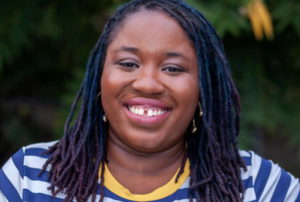
“How can you be more authentic, especially if you ever say that you want more inclusion or want to provide more access?” says Miller-White. “If you say, ‘Our mission is to present the classics in the most beautiful production you’re going to see,’ then cool. No one wants to say, ‘We just put on pretty shows that will entertain you.’ If that’s you’re doing, stop purporting to do more than that.”
Says Benjamin: “I want to see them doing less and checking in with people more. Because we’re in an industry, it means we’re expected to produce things with frequency to give yourself a name. But what ends up happening is I see all these people doing really exciting things, and what we hear about within the community are the harms or wrongs that happened on the way there.”
Cat Ramirez (they/them), PAPA’s creative director, adds, “As somebody who has worked as an associate-level employee, it has felt uncomfortable to work at organizations where the budget doesn’t reflect values that they’re striving for. The biggest example I can give is how community engagement is treated for a lot of companies: They want to bring in BIPOC communities to see these plays that they’re doing, but you get no budget to do that.”
Says Ortiz, “The actual thing they should do is just survey their staff. What’s working for you? What’s not working for you? What do you need from us? How can we help you be better at your job? It doesn’t have to be stressful, and it doesn’t have to be in person. With that, you’re going to make pretty good, solid change in a couple years and it’s going to be a healthier environment where the people that are working there are creating the environment that they are working in.”
Right now we’re living in a time where many of us are questioning the impact of our art and what professionalism truly means. Since the pandemic began, we’ve experienced isolation from our own communities, the George Floyd protests, disturbingly large forest fires, the riot on Capitol Hill, constant ruminations over cancel culture, and overwhelming anxiety over our climate emergency. At times, even I’ve felt paralyzed over how to wade through this ambiguity.
What I do know is that sitting in this discomfort is necessary, and even expansive for my craft. I know that part of my growth is understanding how professionalism has become a fraught subject, and far more culturally contingent than others may realize. Believing in our right to exist as artists require us to engage with practices that we’re not familiar with, which means grappling with the ways in which the combination of white supremacy culture, colonialism, and capitalism has impacted the field.
Carl(os) Roa (they/them) is a creator, writer, performer, and organizer based in Philadelphia. They’ve written for HowlRound Theatre Commons and Artblog, two publications that they’re proud to be associated with.

